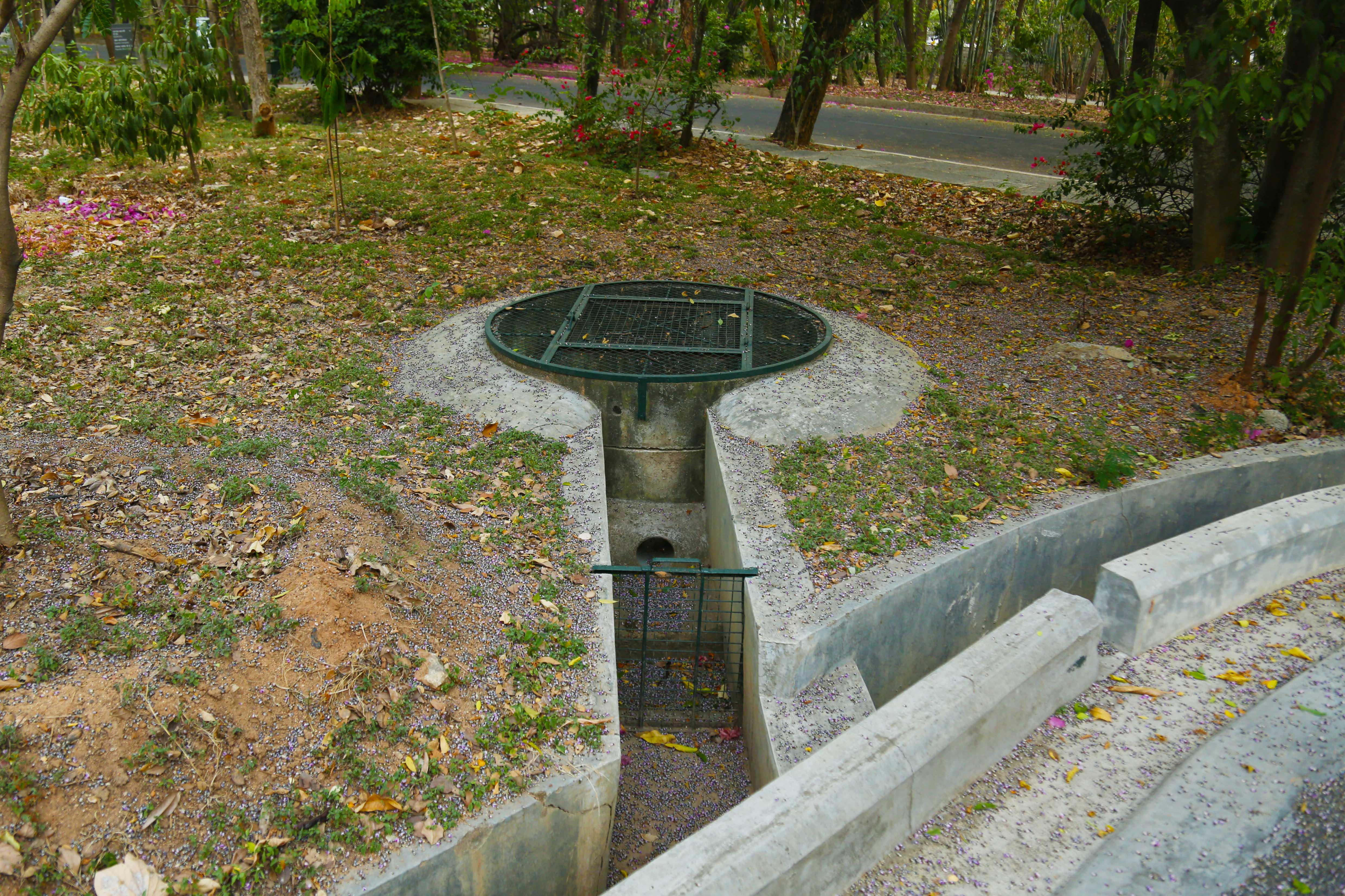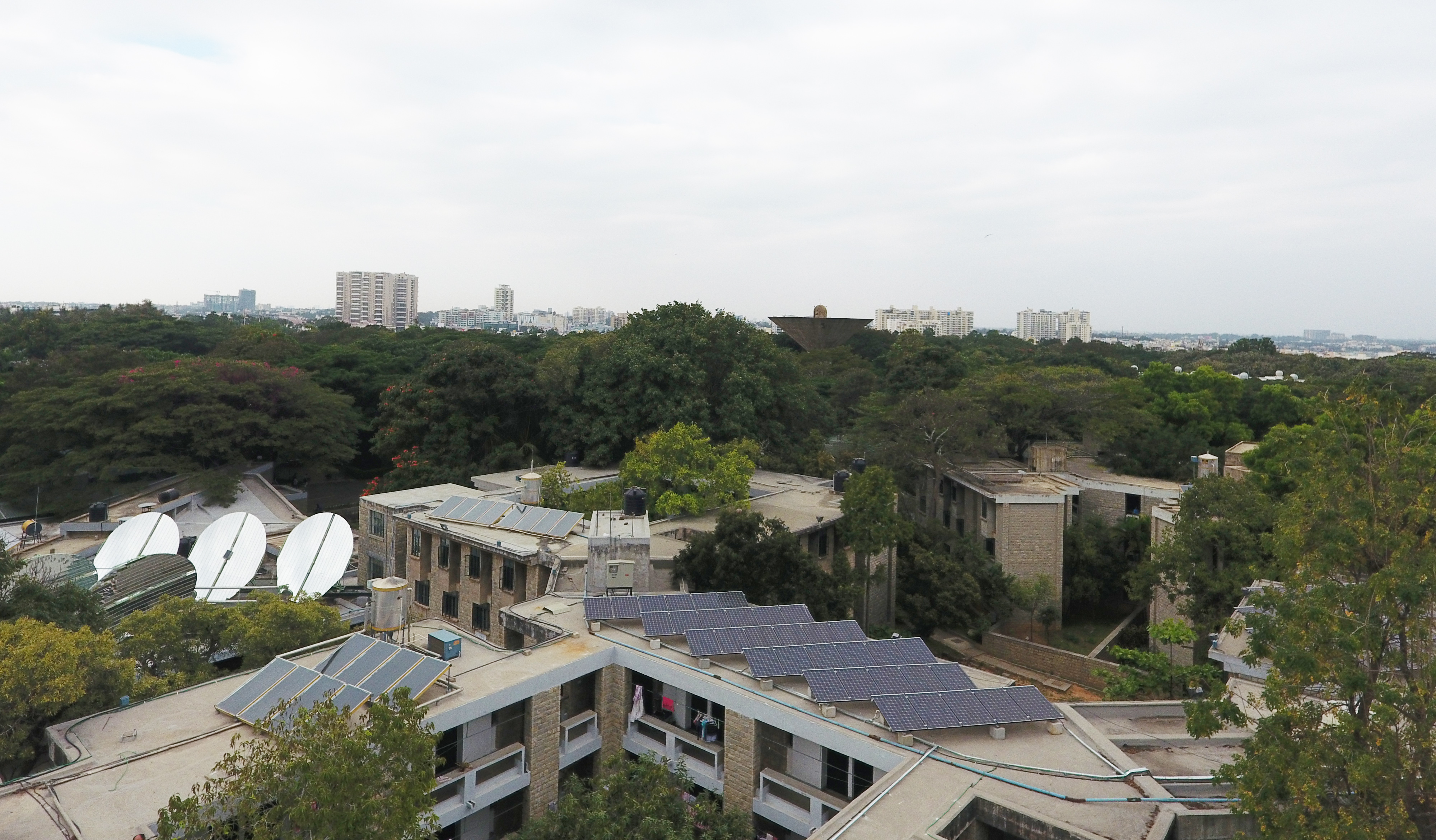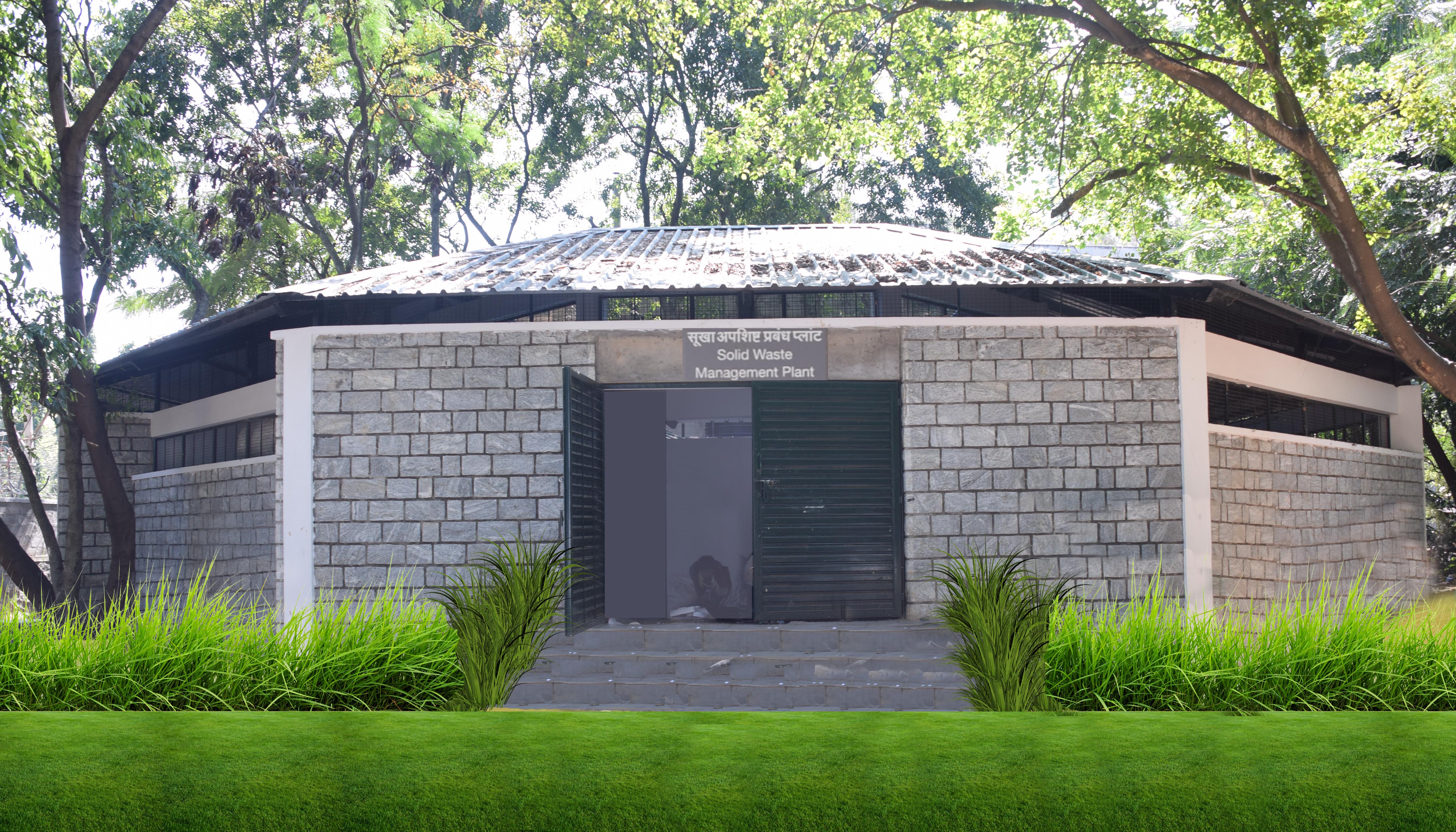Spread over a lush 100-acre campus, Indian Institute of Management Bangalore, on Bannerghatta Road, is one of the country’s premier management institutions.
While IIMB’s faculty, students and alumni are well known and respected for their achievements, the campus itself is no stranger to fame. It has won awards for its horticulture initiatives, for its documentation of flora and fauna, for its readiness to adopt and nurture translocated trees, and its sustainable practices and clean energy use.
“At IIMB, we have a strong focus on environmental awareness and sustainable living. Our buildings are constructed from eco-friendly and locally-sourced materials, we meet the majority of our energy needs through our roof-top solar panels, we implement rainwater harvesting, we have recharged several wells, we heat our water via solar power and we have a modest recycling centre where it is the responsibility of everyone on campus to separate their waste. Most of this waste is reused as it gets composted at a biogas plant on campus, and the remainder is sent for recycling,” explains Professor MS Narasimhan, Dean, Administration.
“Living in a sustainable manner and integrating environmental education into the learning process helps our students understand how their decisions and actions affect the environment, and enables them to make informed decisions as managers of the future,” he adds.
Read on to get a tour of these solutions and comment your favorite ones.
1.Parabolic Solar Panels
 Parabolic Solar Panels
Parabolic Solar Panels
Installation: 2010.
Capacity: It has a capacity of steam produce equivalent to 10-15 kg LPG cylinders per day that helps reduce the consumption of LPG by 15%
Usage: Parabolic Solar panels are for steam generation for mass cooking.
2. Bio gas plant
 Bio-gas plant
Bio-gas plant
Installation: 2016
Capacity – 400 kg /day
Reduces the energy – Equivalent to 22kg LPG/day
Usage: Food waste is converted into bio-gas for cooking purposes.
3. Recharge wells:
 Recharge wells
Recharge wells
Installed- 2010 onwards and it is an ongoing activity like recharge wells
Capacity- Overall 1 lakh litres for the under construction one; already existing ones have a capacity of 75,000 litres each
Usage- Rooftop rain water reused for bathing, washing, flushing etc. except for drinking.
4. Ground Recharge Wells:
 Ground Recharge Wells
Ground Recharge Wells
57 ground recharge wells have been provided.
Due to constant recharging of ground through recharge wells, over the last 8 years, five borewells out of 14 which had dried up have been rejuvenated and are yielding water.
Usage: On average 20% of the total water requirement is met by rejuvenated bore wells and rain water harvesting measures at the campus.
5. Roof-top solar panels
 Roof-top solar panels
Roof-top solar panels
Installation: 2017
Capacity: It has a capacity of 290 kilowatts and reduces BESCOM bill by 15%.
 Solar panels
Solar panels
6. Solid Management Waste Centre
 Solid Management Waste Centre
Solid Management Waste Centre
Installation: Full-fledged waste segregation plant was established in the year 2010.
Usage: All types of waste generated at campus is segregated and recycled.
7. Sewerage Treatment plant
 Sewerage Treatment plant
Sewerage Treatment plant
Installation year: 2014
Capacity- 600KLD
Usage- For watering the gardens, lawns, plants etc. at campus. Entire requirement of water for gardening is through recycled STP water (100%)
8. Heat pumps
Installation year: 2015
Capacity: 50 percent of power consumption is saved to maintain the temperature level through electricity
Usage: Works on reverse cycle of AC and keeps the water hot 24*7
9. Compost pits
Implemented from- 2015
Usage: Used for composting natural wastes generated through garden waste like leaves, dry branches of trees and used as manure. Entire requirement of manure required for plants is generated from compost pits on campus
And so, we have come to end of our tour. Did you find it inspiring?
Which initiative did you like the best? Let us know.
